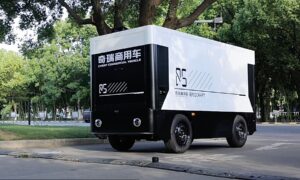The rise of autonomous vehicles (AVs) has sparked a significant transformation in the transportation sector. This technology promises not only to change how we travel but also to enhance safety, reduce congestion, and minimize environmental impact. Virginia is emerging as a key player in this revolution.
The Rise of Autonomous Vehicles
Autonomous vehicles are designed to navigate and operate without human intervention. This capability relies on advanced technologies like artificial intelligence (AI), machine learning, and a network of sensors. These vehicles can analyze their surroundings, make decisions, and adapt to changing conditions. Consequently, AVs have the potential to make roads safer and transportation more efficient.
Benefits of Autonomous Vehicles
The benefits of autonomous vehicles are vast. They promise to:
Enhance Safety:
A significant number of traffic accidents result from human error. AVs can minimize this risk by using sensors and AI to make real-time decisions. This technology can detect obstacles, assess traffic conditions, and respond faster than human drivers.
Reduce Traffic Congestion:
With AVs communicating with each other and traffic management systems, they can optimize traffic flow. This coordination can lead to smoother journeys and reduced travel times.
Lower Environmental Impact:
Autonomous vehicles can be designed to operate efficiently, reducing fuel consumption and emissions. Many AVs are also electric, further contributing to environmental sustainability.
Virginia’s Strategic Role
Virginia is at the forefront of autonomous vehicle development. The state has taken proactive measures to foster innovation in this field. The government has created policies and frameworks to support testing and deployment. As a result, Virginia is becoming a model for other states looking to embrace this technology.
Legislative Support
In recent years, Virginia has enacted several laws aimed at promoting the safe testing and deployment of autonomous vehicles. For example, the Virginia General Assembly passed legislation that allows companies to test AVs on public roads. This legal framework provides clarity and encourages manufacturers to invest in Virginia.
Additionally, the state has established guidelines for insurance and liability concerning AVs. These measures help protect both consumers and manufacturers, creating a conducive environment for growth.
Collaborations with Industry Leaders
Virginia has formed partnerships with various technology companies and research institutions. These collaborations foster innovation and ensure that the state remains competitive in the AV landscape. For instance, the Virginia Tech Transportation Institute (VTTI) is conducting extensive research on AV technology. Their work focuses on understanding how these vehicles interact with human drivers and the infrastructure.
Furthermore, companies like Uber and Lyft have tested their autonomous vehicles in Virginia. These partnerships provide valuable data and insights, allowing for continuous improvement and refinement of AV technology.
Testing and Development Centers
Virginia has established several testing and development centers for autonomous vehicles. One notable facility is the Commonwealth Center for Advanced Logistics Systems (CCALS) in the Port of Virginia. This center focuses on logistics and supply chain solutions, including the integration of AVs into these systems.
Another significant site is the Virginia Automated Corridors project, which involves testing AVs on designated routes. These corridors are equipped with the necessary infrastructure to facilitate testing, such as smart traffic signals and dedicated lanes. This initiative allows researchers and developers to assess how AVs perform in real-world conditions.
Educational Initiatives
Education plays a vital role in the advancement of autonomous vehicles. Virginia has recognized the need for a skilled workforce to support this industry. As a result, several universities and colleges are offering programs focused on autonomous technology.
Virginia Tech
Virginia Tech is leading the charge in research and education related to AVs. The university’s transportation program integrates studies in engineering, computer science, and public policy. This interdisciplinary approach prepares students for careers in the rapidly evolving field of transportation technology.
Moreover, Virginia Tech’s Transportation Institute collaborates with industry leaders to provide hands-on experience. This practical training equips students with the skills necessary to contribute to the development of AVs.
Community Engagement
Virginia is also committed to engaging the community in discussions about autonomous vehicles. Public forums, workshops, and seminars help raise awareness and address concerns about this technology. These initiatives foster a dialogue between industry leaders, policymakers, and citizens. This engagement ensures that the development of AVs aligns with public interests and values.
Challenges and Considerations
Despite the numerous benefits, the transition to autonomous vehicles comes with challenges. Virginia, like many states, faces hurdles that must be addressed for successful integration.
Regulatory Hurdles
While Virginia has made strides in creating a legislative framework, further regulatory clarity is needed. As AV technology evolves, laws must adapt to address new issues, such as data privacy and cybersecurity. Policymakers need to collaborate with industry experts to develop comprehensive regulations.
Public Perception and Trust
Building public trust in autonomous vehicles is crucial for their widespread adoption. Many people harbor concerns about safety and the technology’s reliability. To address these issues, Virginia must prioritize transparency and education. Public demonstrations and pilot programs can help alleviate fears and showcase the benefits of AVs.
Infrastructure Readiness
The existing infrastructure may require upgrades to accommodate autonomous vehicles. Smart traffic signals, dedicated lanes, and updated signage are essential for AVs to operate safely. Virginia’s investment in infrastructure will be critical to ensuring seamless integration.
Conclusion
Virginia’s contributions to the future of transportation through autonomous vehicles are significant and multifaceted. The state’s proactive legislative efforts, strategic partnerships, and educational initiatives position it as a leader in the AV revolution. As the industry continues to evolve, Virginia must navigate challenges related to regulation, public perception, and infrastructure. By doing so, it can harness the potential of autonomous vehicles to create a safer, more efficient, and sustainable transportation future for all.
Virginia’s commitment to innovation and collaboration sets a promising precedent. Ultimately, the successful integration of AVs will depend on ongoing efforts to address challenges and embrace opportunities. The future of transportation is here, and Virginia is playing a pivotal role in shaping it.



































